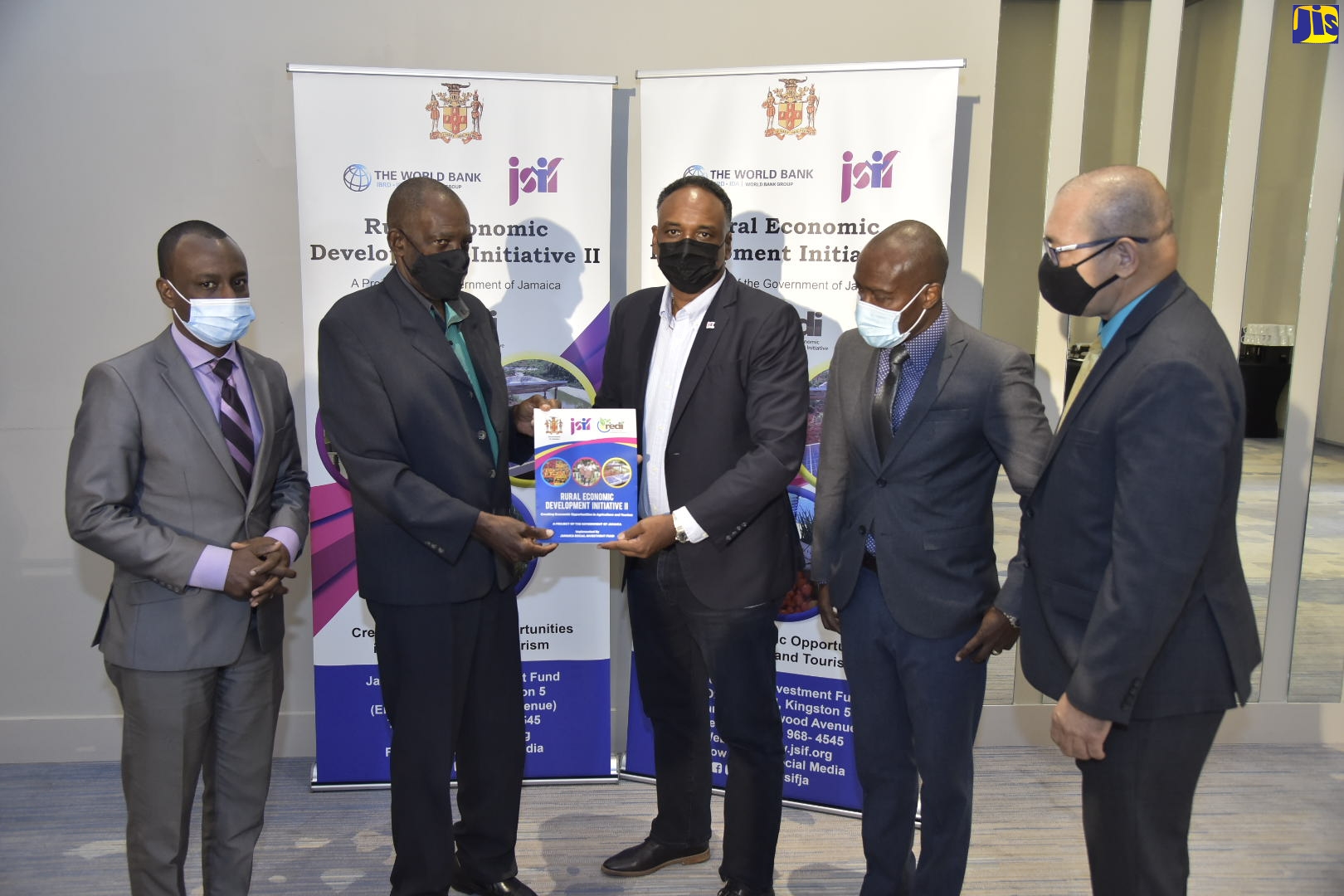MoU Signed for Implementation of REDI II
By: , March 1, 2021The Key Point:
The Facts
- REDI II is valued at approximately $500 million and is being funded by the World Bank through a loan agreement.
- Through the JSIF and JBI partnership, some 320 greenhouse farmers and their households, including vulnerable groups and persons with disabilities, are slated to benefit from the initiative. The project is to be implemented over a five-year period.
The Full Story
A Memorandum of Understanding (MoU) has been signed between the Jamaica Social Investment Fund (JSIF) and the Jamaica Bauxite Institute (JBI), for implementation of the second phase of the Rural Economic Development Initiative (REDI II) water harvesting and greenhouse cluster project.
REDI II is valued at approximately $500 million and is being funded by the World Bank through a loan agreement.
Through the JSIF and JBI partnership, some 320 greenhouse farmers and their households, including vulnerable groups and persons with disabilities, are slated to benefit from the initiative. The project is to be implemented over a five-year period.
The MoU was signed by Managing Director, JSIF, Omar Sweeney and General Manager, JBI, Stevie Barnett, during a ceremony at the AC Kingston Marriot Hotel, on February 26.
Expected outcomes of the Water Harvesting and Greenhouse sub-project are: the construction of approximately 300 greenhouses in mined-out lands across multiple parishes supported by repurposed bauxite pits for rainwater harvesting to increase vegetable crop production; wider benefits to communities in terms of greater food availability and employment opportunities and economic development through entrepreneurship revenue generation; crop production that is resilient to climate change; and increased production capacity to respond to greater market demand.
Other objectives include: the establishment of Food Safety Infrastructure that satisfies the United States Food and Drug Administration requirements, to include: bathroom, changing rooms, handwashing stations, pesticide storage and packing sheds; and comprehensive capacity building in terms of the adoption of modern greenhouse technologies and the integration of sound business practices in the operation of the greenhouse clusters.
Minister of State in the Ministry of Transport and Mining, Hon. J.C. Hutchinson, said the objective of the project is to enhance access to markets and to climate-resilient approaches for targeted beneficiaries.
“We will see strengthened market linkages, better Agriculture and Tourism linkages, improved productivity, improved standards and quality outputs, as well as a host of other benefits,” Mr. Hutchinson said.
He added that the project aligns with the vision of the Government for a sustainable economy, which is to invest even more resources to foster sustainability and wide-ranging research efforts to meet new challenges, maximising on new opportunities for the benefit of the country.
Under REDI I, approximately $236 million was spent benefitting 160 farmers in the parishes of Manchester, St Ann and St Elizabeth.
Meanwhile, Mr. Sweeney said this type of protected agriculture will see farmers becoming more resilient to the effects of climate change, while enabling their ability to respond to greater market demands.
He pointed out that the initial greenhouses continue to thrive and are still viable businesses.
“They continue to represent a model of farming business that we want to see scale up and spread across the country, and so the Bauxite Institute, working along with them will see us repurposing the mined out lands across the parishes to do rainwater harvesting, solar water pumps and increase the vegetable crop production in these communities,” he said.
Chief Technical Director in the Ministry of Agriculture and Fisheries, Courtney Cole, said the MoU aims to provide smallholder farmers with agricultural inputs, so they can continue to generate income and produce food for their families and communities.
He noted that it is in keeping with the strategic charge of the Ministry as it relates to safeguarding the food security and livelihood of the most vulnerable.
“It also speaks to the mitigation of the risks of large shocks, such as drought and other natural disasters, that would have a considerable impact on everybody, especially the poor and most vulnerable,” he said.
In his remarks, Mr. Barnett said the JBI is proud to be a part of any initiative that is geared towards the advancement of one of Jamaica’s largest and most important industry – agriculture.
He noted that operations of the bauxite industry takes place across areas in rural Jamaica spanning the parishes of St. Catherine, Clarendon, Manchester, St. Elizabeth and St. Ann.
“Agriculture for the members of these communities is basically the bread and butter, so the JBI has a duty to safeguard the interest of individuals who live in these communities and we take this task seriously,” Mr. Barnett said.
“As such, the Bauxite Community Development Programme, which operates through the JBI, pays keen attention to ensure that persons living in these communities who rely heavily on agriculture, benefit greatly from initiatives that set out to protect and advance their welfare,” he added.
Mr. Barnett said this mandate is governed by the relationship between the JBI and JSIF.
“It led to a successful collaboration on water harvesting and greenhouse cluster projects during our REDI I programme and now we move forward into the second phase where we will develop the work previously done,” he said.






